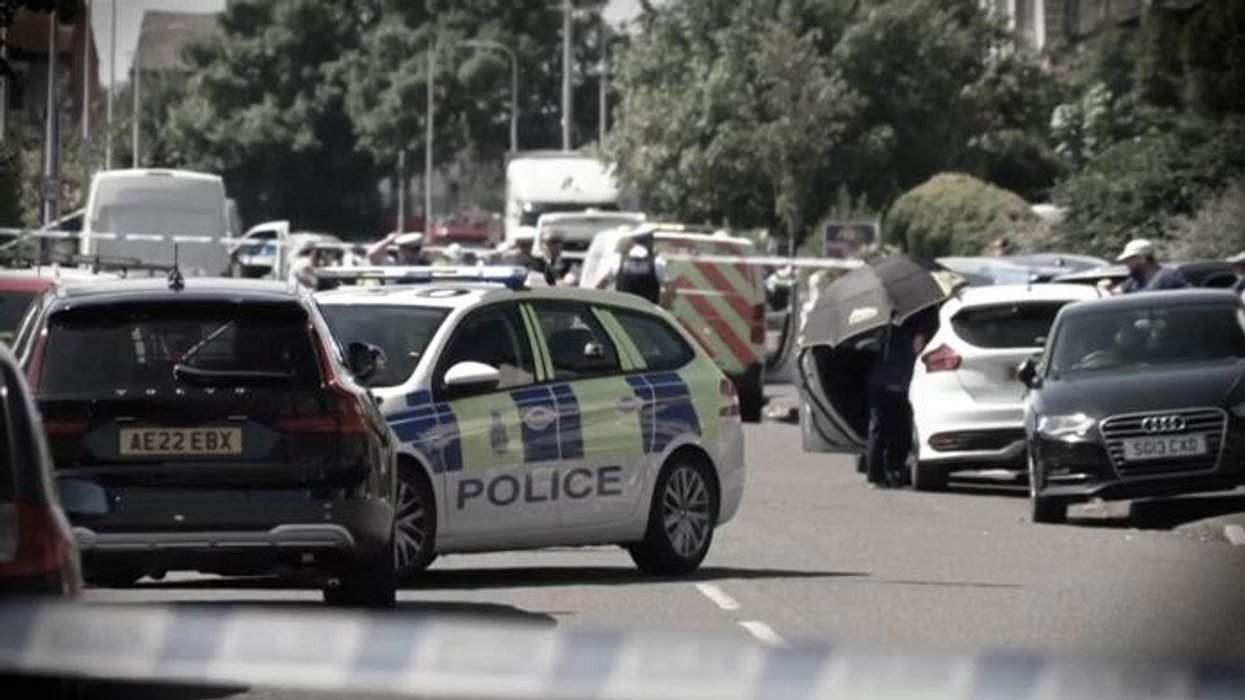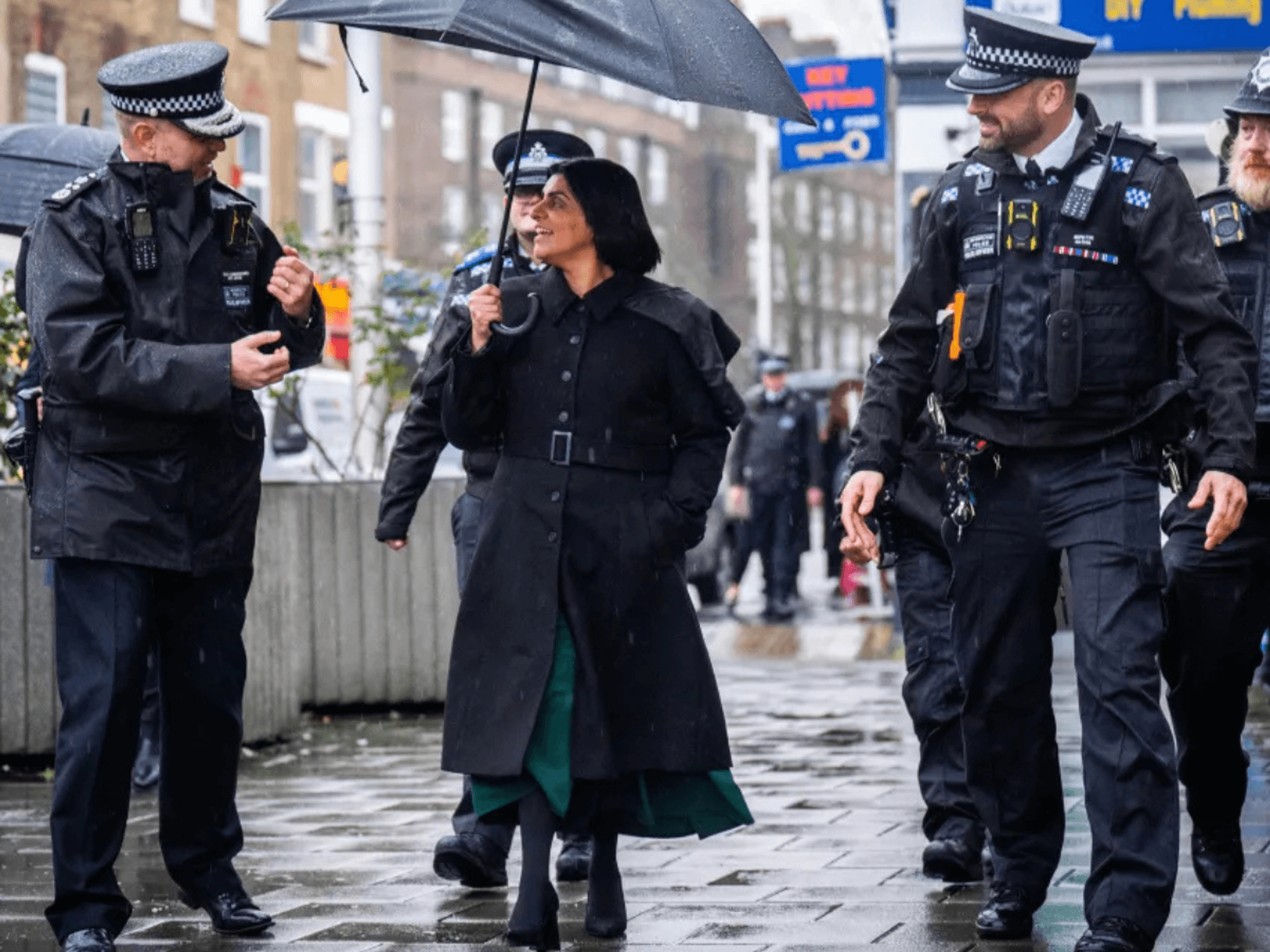The Southport attack exposed a brutal reality that fractured Britain is afraid to confront - Rakib Ehsan
We must do everything in our power to prevent another lone act of violence from triggering widespread disorder
Don't Miss
Most Read
Trending on GB News
Today marks the first anniversary of one of the darkest moments in our modern history – the horrific Southport atrocity.
Three little girls – Bebe King, Elsie Dot Stancombe, and Alice da Silva Aguiar – were brutally murdered at a dance class in the usually peaceful Merseyside seaside town by Axel Rudakubana.
What followed were nationwide riots in England as well as public disorder in Belfast in Northern Ireland, which led to mass arrests and swift prosecutions. But have we truly learned the lessons from last summer?
Firstly, it is worth starting off with the undeniable fact that the killing of Bebe, Elsie, and Alice could have been avoided.
Rudakubana – who had a morbid fascination with violence in the form of genocides, terrorist attacks, and school shootings – was referred to the UK’s anti-terror PREVENT programme on three occasions.
It was later revealed that he had in his possession an academic study of a jihadist training manual, along with material on Nazi Germany and anti-colonialist literature on imperial violence.
However, as he did not have a clearly defined ideological motivation, he slipped through the cracks – with utterly devastating consequences.
The Southport atrocity exposed the reality that our domestic security architecture is not fit for purpose – it has failed to keep up with the ever-evolving threats facing our local communities in an era of social transformation and rapid technological change.
 Pray we draw the right lessons from Southport. We owe it to the victims and future of Britain - Rakib Ehsan |
Pray we draw the right lessons from Southport. We owe it to the victims and future of Britain - Rakib Ehsan | PA
Although Axel Rudakubana's parents distanced themselves from his monstrous crimes, insisting that their country of birth's bloody past - Rwanda endured a four-year civil war in the 1990s - played no part in their son's descent into mass murder, there is a broader conversation that needs to be had about the threat to public safety posed by British-born youths whose parents came from countries with a recent history of extreme violence.
This ‘intergenerational trauma’ means the offspring of those with such troubling life experiences can themselves be at higher risk of psychiatric disorders – a world away from the overly idealistic expectation that they blossom into instinctively grateful citizens who will prioritise stability over chaos.
Running alongside PREVENT, there needs to be a separate scheme which has a particular focus on those with an obsession with violence – especially younger males with troubled backgrounds who have a history of consuming a high volume of horror and gore.
While their ideological background may be mixed, unstable, or unclear, they nevertheless pose a serious problem for wider society.
These agencies also need to be better connected to mental health services – with greater powers to detain those who may not have done enough to be arrested, but represent a significant risk to public safety. Rudakubana clearly fell into this category.
The horrific Southport atrocity does not excuse last summer’s violent disorder, with much of this being fuelled by unfounded conspiracy theories relating to the identity of the perpetrator.
Rudakubana was not a Muslim small-boat migrant of Middle Eastern origin who illegally arrived in the UK through the English Channel.
In fact, he was born in Cardiff to a Rwandan churchgoing family, lived in the Lancastrian village of Banks, and unleashed his gruesome terror on the Merseyside coast.
People were right to be angered by this homegrown catastrophe and the fundamental security failures behind it, but in no way does all this justify the violent disorder and destruction of private property which unfolded, which included the attack on Southport Mosque and the torching of a Muslim-owned business in Belfast.
Moving forward, we must ensure that a repeat of the Southport atrocity never takes place. This should be at the heart of the ongoing Southport public inquiry, which is being chaired by Sir Adrian Fulford.
The much greater challenge is how to solve the problem of modern Britain being a ‘tinderbox’ of social tension, political disaffection, and institutional distrust - where a solitary event risks triggering widespread disorder.
More From GB News











